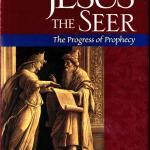At the moment the state of Pauline scholarship could be divided into four basic camps:
(1) Traditional Protestant. Paul was preacher of grace that stands in contrasts to the legalism/nomism of second temple Judaism. In some versions, this is accompanied with an implied or even explicit supersessionist view of the church as replacing Israel.
(2) The New Perspective on Paul. The problem with Judaism was not legalism, but ethnocentrism. Paul was arguing that Jews need to accept that God has acted in Christ to bring Jews and Gentiles into the new saving event ahead of an eschatological consummation.
(3) The Apocalyptic/Barthian Paul. Paul proclaimed God’s invasive and cosmic act of salvation to rectify and renew the whole creation rendering the old order with its religion as obsolete.
(4) The Radical Perspective on Paul. Paul was Jewish and Torah-observant. He tried to bring Gentile communities into closer fellowship with Jewish communities while protecting them from proselytism. Paul believes that Jesus saves Gentiles, but Jews are saved under the auspices of the Mosaic covenant.
In this post I’m going to describe the origins of the Radical Perspective (RP), give a brief description of its reading of Paul, and note its relative strengths. In a subsequent blog post, I will offer a critique of contestable elements.
Krister Stendahl is recognized as the genetic source of both the NPP and the RPP by urging scholars to read Paul apart from the spectacles of Protestant and Catholic theology. However, I think Markus Barth is a better fore-bearer, due to his provocative essay, “St. Paul – A Good Jew?” which contests anti-Jewish readings of Paul by German biblical scholars and theologians. It was then scholars like John Gager and Lloyd Gaston who took this up in their own way, particularly by emphasizing that Paul in Romans 9-11 espoused a Sonderweg for Israel whereby Israel was saved by their “special way” under the Mosaic covenant, meaning that Jews did not need Jesus. Central here also is Mark Nanos, a Jewish scholar, who has probably done more than others to stress Paul as a Jewish figure. Nanos perceives Paul defending Gentiles from proselytism even while they joined Christ-believing Jewish groups which practiced Torah-observance and they adopted some token measures of Torah-observance themselves. Thus, Nanos regards Paul as engaging in an intra-Jewish debate about the status of Christ-believing Gentiles within Jewish assemblies rather than engaging in an adversus Israel debate that pits the ‘Christian’ Paul against the Jewish people. However, it is no longer Nanos’ one man show and this “view” includes a wide-range of people who adopt similar or sympathetic readings of Paul to that point that we can speak of a somewhat homogeneous perspective called the RPP. We could add other Jewish scholars here like Paula Fredriksen, Amy-Jill Levine, and Pamela Eisenbaum, mainline protestants like Neil Elliott, Catholics like Caroline Johnson Hodge, a messianic Jew like David Rudolph, and even evangelicals like Brian Tucker. While these scholars would disagree amongst themselves about a lot of things, I think they would all agree that Paul was Jewish, Torah-observant, and primarily sought to keep Gentiles free from Jewish proselytism. I think my blog buddy Joel Willitts might even be highly sympathetic to this view. The recent book, Paul within Judaism: Restoring the First-Century Context to the Apostle is a good entree to what a number of these scholars are arguing.
Thus, the main tenets of the RPP are:
1. Pauline scholarship is too Christian and too theological.
2. Paul was Jewish and not a “Christian.”
3. Paul was Torah-observant.
4. Paul believed that Jesus saves Gentiles.
5. Jew are saved under the auspices of the Mosaic Covenant.
6. Paul tries to integrate Gentiles into Christ-believing Jewish assemblies without the need for conversion to Judaism.
7. Gentile Christ-believers have guest status within Israel, they are not a “third race,” not part of Israel, nor do they replace Israel.
8. The “works of the law” is rites leading to proselytism and “pistis” means trust/loyalty.
Let me show why this (partly) works!
Paul was Jewish. It is impossible to deny this basic fact given Paul’s own explicit testimony to his ethnic identity and religious heritage as a Jew, Hebrew, and Israelite. Paul says:
We ourselves are Jews by birth and not Gentile sinners (Gal 2:15).
[I was] circumcised on the eighth day, a member of the people of Israel, of the tribe of Benjamin, a Hebrew born of Hebrews; as to the law, a Pharisee (Phil 3:5).
Are they Hebrews? So am I. Are they Israelites? So am I. Are they descendants of Abraham? So am I (2 Cor 11:22).
For I could wish that I myself were accursed and cut off from Christ for the sake of my own people, my kindred according to the flesh. They are Israelites (Rom 9:3-4).
I myself am an Israelite, a descendant of Abraham, a member of the tribe of Benjamin (Rom 11:1).
And according to Luke:
Paul replied, “I am a Jew, from Tarsus in Cilicia, a citizen of an important city” (Acts 21:39).
Then he said: “I am a Jew, born in Tarsus in Cilicia, but brought up in this city at the feet of Gamaliel, educated strictly according to our ancestral law, being zealous for God, just as all of you are today” (Acts 22:3).
Paul believed that he belonged to the “race” of the Jewish people (2 Cor 11:26; Gal 1:14), who are his “kindred” and brothers , and even his very own “flesh” (σάρξ) he passionately declares (Rom 9:3; 11:14). That should be unsurprising since Paul was born into a Jewish family, he was educated in the Jewish religion, even becoming a Pharisee, and his zealous commitment to his ancestral traditions was demonstrated in his persecution of the church (Acts 9:4-5; 22:4-8; 26:14-15; 1 Cor 15:9; Gal 1:13, 23; Phil 3:6; 1 Tim 1:13). Even as a Christ-believer Paul remained a devout monotheist (Rom 3:30; 1 Cor 8:4; Gal 3:20), he affirmed Israel’s election, calling, and covenants (Rom 3:2; 9:4-5; 11:28-29), and he treated Israel’s scriptures as a divine revelation (e.g., 2 Cor 4:6; 6:16).
Even in his apostolic work as a Christ-believer, Paul remained thoroughly Jewish. He engaged in heartfelt lament for the Jews (Rom 9:1-3), he prayed for their salvation (Rom 10:1), sought to winover and save some Jews (1 Cor 9:20-22), and even fashioned his apostolate in service to the Jews (Rom 11:14; 15:25-28, 21; 1 Cor 16:1-4). Paul worked in partnership with the Judean churches (Gal 2:1-10) and included many Jews among his co-workers (Rom 16:7; 1 Cor 9:6; Col 4:11). He presented himself as a figure who functions like a Jewish prophet (1 Cor 2:6-16; 2 Cor 4:1-6; 12:1-10), reminiscent of the Isaianic “servant” (Gal 1:15; 2 Cor 6:2; 2 Cor 7:6; Phil 2:16; see Acts 13:46-47) and even a priest (Rom 15:16). Moreover, by preaching monotheism and messianism, and by insisting that his Gentile converts avoid idolatry and sexual immorality, Paul was, in a limited sense at least, judaizing the Gentiles (Rom 1:18-32; 1 Cor 5:10-11; 6:9; 8:4; 10:7, 14; 12:2; 2 Cor 6:16; Gal 5:19-21; 1 Thess 1:9).[1] Paul’s call and apostolic mission to lead the Gentiles to praise Israel’s God and to obtain a faithful obedience should be regarded as a very Jewish vocation.[2]
[1] Cf. Paula Fredriksen, ‘Judaizing the Nations: The Ritual Demands of Paul’s Gospel,’ in Paul’s Jewish Matrix, eds. T.G. Casey and J. Taylor (Rome: Gregorian & Biblical Press, 2011), 327-54 (esp. 352).
[2] Cf. N.T. Wright, “Romans 2:17–3:9: A Hidden Clue to the Meaning of Romans?” JSPL 2 (2012): 1-28; Lionel J. Windsor, Paul and the Vocation of Israel: How Paul’s Jewish Identity Informs His Apostolic Ministry, With Special Reference to Romans (BZNW 205; Berlin: Walter De Gruyter, 2014).











